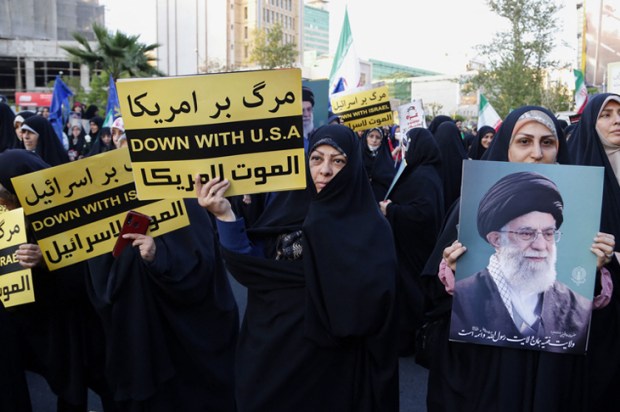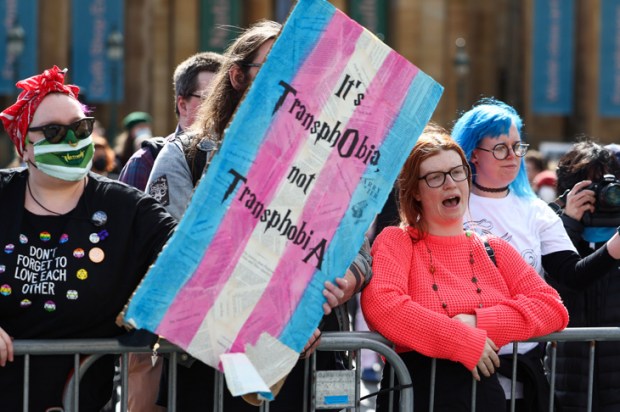On the second anniversary of declaring a pandemic on 11 March 2020, the World Health Organisation (WHO) is hoping to make itself even more powerful by negotiating a global ‘pandemic treaty’. After the unholy mess that the WHO made of mismanaging the pandemic, the idea of handing it more powers is alarming, yet negotiations on an international agreement to prevent and combat pandemics have begun, based on Article 19 of the WHO’s constitution, which allows its General Assembly to adopt binding agreements for all 194 member states by a two-thirds majority.
The proposal for a treaty on pandemics was first announced by the President of the European Council, Charles Michel, at the Paris Peace Forum in November 2020 who said we need to ‘learn the lessons of the pandemic’ yet nothing about the way the pandemic has been managed gives any confidence that any lessons have been learnt by governments anywhere.
At the G7 summit in February 2021, the leaders committed to ‘build back better’ by working ‘to strengthen the WHO’, supporting its leading and coordinating role to accelerate global vaccine development and deployment and promote transparent and responsible practices and vaccine confidence.
EU leaders agreed to work on the international treaty on 25 February 2021 and said they were committed to advancing global health security ‘‘by strengthening the World Health Organisation’. The EU’s governing Council adopted a decision to authorise the opening of negotiations on 3 March. The intergovernmental negotiating body will hold its next meeting by 1 August, with a view to delivering a progress report to the 76th World Health Assembly in 2023 and adopting the instrument by 2024.
It is not clear what the new powers to be given to the WHO would enable it to do but it seems highly likely that it would not empower them to unilaterally enter a country such as China and investigate its biological laboratories to discover the origins of a pandemic. And even if it did, China would never brook such a breach of its sovereignty.
It seems far more likely that any powers would be used for far less controversial ends, for example to prescribe lockdowns or to override the sovereign rights of the individual by the imposition of QR codes to track and trace people, mandatory masks, and mandatory vaccinations, documented in digital vaccine passports.
Putin’s war on sovereignty is the old-fashioned kind. Last month, in a rambling, hour-long speech he said that Ukraine had never had ‘real statehood’ and only exists due to the bumbling errors of Russian leaders. It’s an argument the Kremlin has made repeatedly. It is the same argument that Iran makes about Israel. Both are aimed at denying legitimacy and justifying a war of annihilation.
If Putin gets his way, Ukraine’s borders would become irrelevant; his goal is to convert his neighbour, the second largest country in Europe after Russia, into a client state, like Syria. No doubt he hopes that, unlike in Syria, he won’t be facing an ongoing civil war in twelve years’ time, but he intends capitalising on the experience of his battle-hardened troops by recruiting thousands of fighters in Syria from the regular army and from militia groups for possible deployment in Ukraine. Thousands of protesters, some carrying Ukrainian flags in solidarity, gathered in Idlib, the rebel enclave in Syria’s northwest on 15 March, the 11th anniversary of the uprising that almost unseated Bashar Al-Assad until Putin used his military might to prop up the Syrian dictator.
Putin has played from the same playbook in each of his wars. In Syria, as in Ukraine, he targeted medical facilities. In Chechnya, he turned Grozny to rubble. In Syria, the Russian aerial bombardment of Aleppo flattened what was left of one of the oldest continuously inhabited cities in the world, founded in the sixth millennium BC. The idea is simply to bomb his victims into submission. It is combined with his practice of amputating the countries he invades; in Ukraine, Donetsk and Luhansk, known as Donbas, and in Georgia, the provinces of South Ossetia and Abkhazia.
Yet Putin’s invasion of Ukraine seems strangely anachronistic. Why does he need to invade the Ukraine when the Russians are masters of disinformation campaigns wielding extraordinary power in the West? Nato’s then Secretary General Anders Fogh Rasmussen said in 2014 that Russia was ‘engaged actively with so-called non-governmental organisations – environmental organisations working against shale gas – to maintain European dependence on imported Russian gas’.
It may be as the late Zbigniew Brzezinski, the former national security advisor to US president Jimmy Carter argued that Ukraine is essential to Russia if it wishes to have a Eurasian empire. He wrote in 1997 that only if Moscow regained control over Ukraine and its major resources as well as its access to the Black Sea, could it regain ‘the wherewithal to become a powerful imperial state, spanning Europe and Asia’. Perhaps the Ukraine is just the first course on a tasting menu that includes Estonia, Latvia, Lithuania, Bulgaria, Romania, Poland, with Finland for dessert.
It seems clear that however grand his ambitions, Putin is also seeking a ‘new world order’ but one that is very different from that sought by Western powers. What he wants is to bury the post-Cold War order and carve out a larger Russian sphere of influence that rejects universal Western values. This leads him into a headlong assault on the sovereignty of states that he seeks to absorb into his sphere of influence, a sphere which rejects the rights of the individual and subordinates them to the state. This is no doubt the basis of the Russian-Chinese entente.
Ironically, the rights of the individual are also under assault in the West, not with the iron fist of the military but the velvet glove of the elites that run the international organisations and their enablers, Big Tech, Big Pharma, Big Media, Big Government. While it is infinitely preferable to live in peace in the West than in the rubble of war-torn satrapies, it seems that there is an ever-higher price to pay both in the circumscription of what were once considered inalienable rights. Among those rights is freedom of speech but after the last two years the freedom to choose – or refuse – medical treatment seems equally threatened, not least by a turbo-charged WHO.
Got something to add? Join the discussion and comment below.
Get 10 issues for just $10
Subscribe to The Spectator Australia today for the next 10 magazine issues, plus full online access, for just $10.
You might disagree with half of it, but you’ll enjoy reading all of it. Try your first month for free, then just $2 a week for the remainder of your first year.














Comments
Don't miss out
Join the conversation with other Spectator Australia readers. Subscribe to leave a comment.
SUBSCRIBEAlready a subscriber? Log in